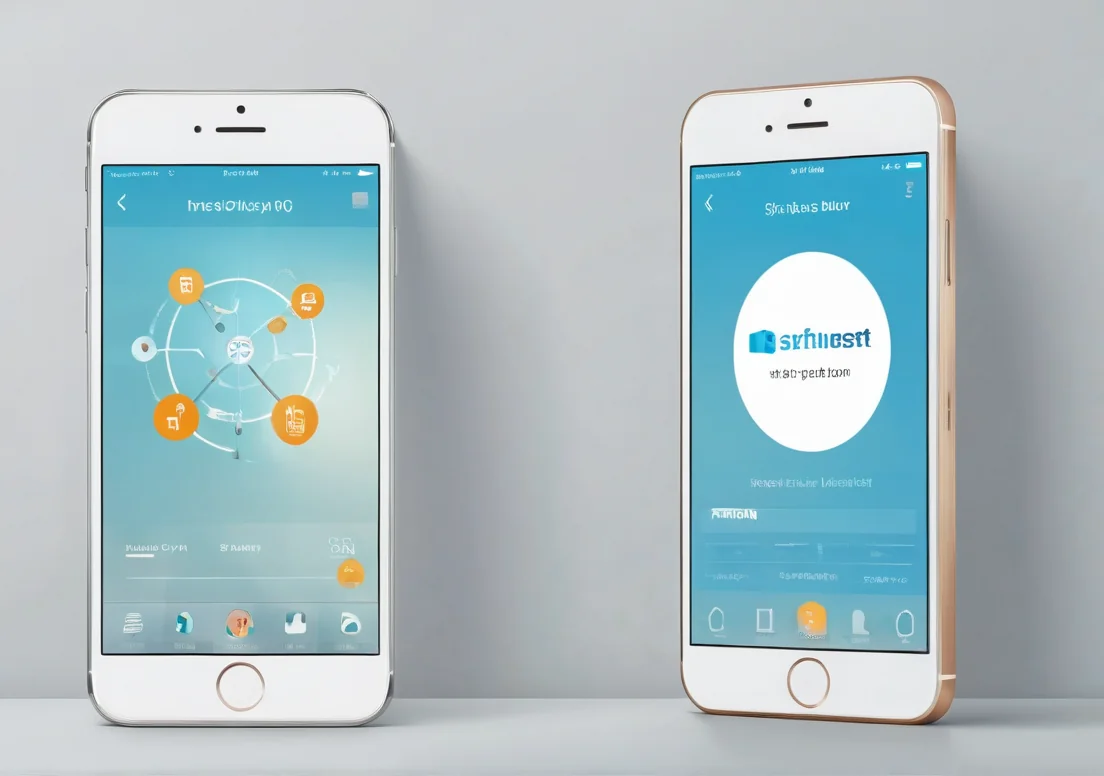In the tech world, terms can get jumbled, and two roles that often share the spotlight are app developers and software developers. While they both create digital solutions, their focuses and methods can differ significantly.
The key differences between an app developer and a software developer lie in their specific skill sets and the projects they tackle. App developers specialize in building applications for mobile devices, while software developers work on a broader range of software solutions, including systems and web applications. There’s a lot more to this conversation than just these distinctions, and you might be surprised by the intricacies that set them apart. Keep scrolling to uncover deeper insights!
Key Takeaways:
- App developers specialize in mobile applications, focusing on platforms like iOS and Android, while software developers work on a broader range of software solutions, including web and desktop applications.
- The coding languages and tools differ, with app developers using Swift and Kotlin, whereas software developers typically utilize Java, C#, and Python.
- Career paths differ as app developers often find roles in startups, while software developers may lean towards established companies due to the complexity of large-scale systems.
Role Overview
App developers and software developers play crucial yet distinct roles in the tech world.
App developers focus mainly on creating applications for mobile devices, whether it’s iOS or Android. They handle the entire lifecycle of app development, from the initial concept all the way to deployment and maintenance. This can involve working with user interface (UI) and user experience (UX) design to ensure the app is intuitive and engaging.
On the other hand, software developers work on a broader scale, crafting software for desktops, servers, and large systems. They might be involved in developing operating systems, enterprise applications, or backend server solutions. Their work often requires integrating software with hardware and ensuring systems run efficiently at scale.
In short, while app developers are honing in on mobile experiences, software developers are looking at the bigger picture of application and system functionality across various platforms.
Skill Set Differences
The coding languages and tools each type uses highlight their distinct areas of expertise.
App developers typically dive into languages like Swift or Kotlin for mobile apps. For iOS applications, Swift is the go-to language, allowing developers to leverage the full power of Apple’s ecosystem. On the Android front, Kotlin has become increasingly popular, thanks to its conciseness and safety features. They often work with frameworks like React Native or Flutter for cross-platform development, enabling a single codebase for both platforms. Additionally, they’ve got to be savvy with mobile-specific tools and libraries like Firebase for backend operations or Xcode for iOS development.
Software developers , conversely, are often linguistically versatile, playing with Java, C#, Python, and others. They might use Java or C++ for building robust applications that require high performance. Python is a favorite for its simplicity and readability, especially for backend web development and data analysis tasks. The tools they use can include Docker for containerization, Git for version control, and various IDEs like Visual Studio or Eclipse, depending on the project needs.
While both roles require a strong foundation in programming concepts, the tools and languages they typically employ diverge significantly, reflecting their different focuses.
Project Focus Comparison
App developers typically focus on creating applications for mobile devices, which means they work extensively with platforms like iOS and Android. Their projects often center around user-friendly interfaces, functionality, and performance optimization for smaller screens. They have to consider things like limited processing power and battery life, shaping their approach to coding and design.
On the flip side, software developers generally work on a broader array of platforms, such as web applications, desktop software, or enterprise solutions. Their projects can include everything from system software to intricate algorithms that run on servers. This means they might tackle larger codebases and more complex architectures. They might use languages like Java, C#, or Python, depending on the project’s requirements, allowing for a diverse range of applications from scientific tools to business systems.
Crucially, app developers need to stay current with the latest trends in mobile development, including incorporating machine learning for personalized experiences or augmented reality features. Meanwhile, software developers might focus on optimizing performance and scalability, dealing with issues that arise as software grows or as user demands evolve.
Work Environment
The work environments for app developers and software developers can differ significantly, influencing how they approach their tasks.
App developers often find themselves in tech companies, startups, or even agencies that focus specifically on mobile applications. The workspace is usually dynamic, emphasizing collaboration and rapid iteration. You’ll often see app developers involved in brainstorming sessions, daily stand-ups, and hands-on testing with real devices. This agile-like atmosphere allows for quick feedback and continuous improvement.
In contrast, software developers might work in more traditional settings, including corporate environments or as part of in-house IT teams. Here, the workspace can be a bit more structured. Developers often collaborate with other departments, such as marketing or operations, to ensure their software aligns with business goals. The projects can be more long-term and not always as rapid-paced as app development.
Unique Angle on Work Environment
Remote work has become more prevalent across both fields, yet it affects each discipline differently. App developers can often embrace a flexible environment since much of their work can be done on personal devices. This provides opportunities for global collaboration with teams working in different time zones.
Software developers, on the other hand, may find that certain aspects of their work—like onboarding or complex integration tasks—benefit from in-person collaboration, which can be harder to replicate in a remote setting. However, many companies in both sectors have adapted, using tools like version control and cloud-based development environments to maintain productivity regardless of location.
Understanding these environments can be vital in determining which path to pursue, as each offers unique advantages and challenges that cater to different types of work preferences.
Education and Certification
Education pathways for app developers and software developers often overlap but can differ in focus. Most app developers typically pursue degrees in computer science, software engineering, or mobile development. They might hone specific skills related to iOS or Android platforms, balancing their studies with practical experience through personal projects or internships.
On the other hand, software developers often have a broader educational background, encompassing fields like information technology or even data science. Their curriculum often includes a variety of programming languages and software design principles. Many software developers also seek certifications to bolster their resumes, like those offered by Microsoft or AWS.
For either career path, practical experience is crucial. Contributing to open-source projects or creating a portfolio of apps or software solutions can be incredibly beneficial. More than just academic credentials, showcasing what you can do is often what sets you apart.
Common Misconceptions
A prevalent myth is that app developers are simply “specialized” software developers. While both roles involve programming, the focus is where the distinction lies. App developers are specifically trained to create applications tailored for mobile devices, which requires a keen understanding of mobile user experience and platform-specific limitations.
Software developers, in contrast, may work on a broader range of systems—think web applications, operating systems, or enterprise solutions. They might not be as deeply immersed in mobile-specific development but often apply their programming skills to various environments.
Another misconception is that one role is less technical than the other. In reality, both demand a high level of technical expertise, albeit in different realms. Additionally, there’s the idea that coding is the only skill needed. Soft skills like communication, teamwork, and problem-solving are just as crucial in both areas since both developers often work in collaborative environments.
Understanding these roles’ nuances helps clear the air about each profession’s worth and the necessary skill sets for succeeding.
Trivia and Unique Insights
App developers and software developers cater to overlapping yet distinct realms within the tech landscape. One interesting fact is that app development has exploded in popularity over the last decade, with the number of mobile apps surpassing 2 million in app stores. Mobile users are glued to their devices; in fact, studies show they spend over 4 hours each day using apps.
On the flip side, software developers are tackling complex challenges across various industries. From building financial systems to integrating AI into applications, they play a critical role in shaping how software interacts with business processes. The rise of cloud computing has also shifted the demand toward software developers who are skilled in deploying applications in cloud environments.
Current trends point to an increasing need for developers who understand both cross-platform app development and advanced software engineering practices. As companies strive for digital transformation, professionals who can bridge the gap between the user interface and backend systems will be in high demand.
Career Opportunities
Diving into career paths, app developers often specialize in platforms like iOS or Android, and many transition into roles like mobile architect or user experience (UX) designer. Given the shift toward mobile-first strategies, their expertise is incredibly sought after.
Software developers have a broader scope. They may evolve into roles such as systems analyst, database administrator, or DevOps engineer. With the demand for automation and data analysis growing, pathways into data science or machine learning are also common for software developers.
Here’s a unique angle: app developers often find opportunities in startups and small businesses looking to create niche applications. This environment can lead to rapid career growth and experience, as they might wear multiple hats and gain experience in various technologies.
Contrarily, software developers might lean toward larger enterprise companies that provide stability and structured career progression. The ability to work on large-scale systems can also lead to specialized roles in cybersecurity or cloud architecture, which are increasingly crucial in today’s digital landscape.
Both paths offer dynamic opportunities, but understanding these nuances can help you choose the right direction based on your interests and career goals.


